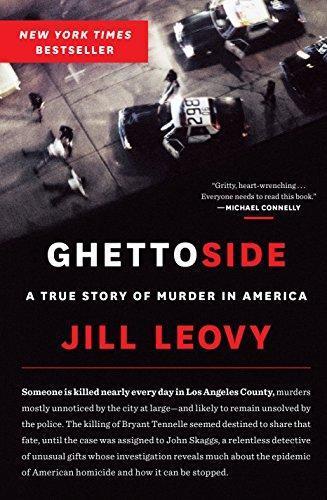Thoughtful reportage
4 steloj
I was impressed with this thoughtful and thought-provoking reportage exploring the wider social issues surrounding the disproportionately high murder rates for black people, especially black men, in America. Compared to Europe, the country seems particularly violent across all its communities regardless of race, but Leovy concentrates her attentions on the Watts district of south Los Angeles in California - a ridiculously dangerous place even by American standards. Her investigation and conclusions are fascinating to read. Incorporating both the historical exclusion of black people from legal recourse in America and the present-day situation that frequently still echoes that negligence, she uses the murder of policeman's son Bryant Tennelle as a focal point around which to expound her theories.
There is frustrating repetition in Ghettoside, but also a strong narrative with heartbreaking lists of names and statistics of ignored murder victims that at times became emotionally difficult to continue with. Leovy effectively …
I was impressed with this thoughtful and thought-provoking reportage exploring the wider social issues surrounding the disproportionately high murder rates for black people, especially black men, in America. Compared to Europe, the country seems particularly violent across all its communities regardless of race, but Leovy concentrates her attentions on the Watts district of south Los Angeles in California - a ridiculously dangerous place even by American standards. Her investigation and conclusions are fascinating to read. Incorporating both the historical exclusion of black people from legal recourse in America and the present-day situation that frequently still echoes that negligence, she uses the murder of policeman's son Bryant Tennelle as a focal point around which to expound her theories.
There is frustrating repetition in Ghettoside, but also a strong narrative with heartbreaking lists of names and statistics of ignored murder victims that at times became emotionally difficult to continue with. Leovy effectively introduces real people - detectives, victims, families - without becoming overly sentimental. Reading Ghettoside in the immediate wake of the Charlottesville protests this month I could easily see for myself the attitude of mainstream America, described by Leovy, and understand at least how the disaster of Watts and other similar inner-city communities has been allowed to develop and continue, if not why. This is a shocking book for its content rather than its attitude and one that I think should be widely read for its insights into estranged communities wherever they might be.

